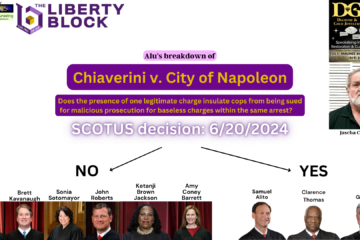NBC’s Controversial New medical Drama Bring Up Important Issues, But Falls Short On Solutions
Last year, NBC began to air a new TV show, which was marketed as a dramatic, realistic, and controversial medical show about a NYC hospital. The TV show, ‘New Amsterdam’ is based on the book ‘Twelve Patients’, which is about Bellevue hospital, a NYC-operated hospital. The show is about a revolutionary ‘new’ concept: A totally public, government-operated, taxpayer-funded hospital that seemingly not only stabilizes, but also treats every patient that walks through its doors, regardless of their ability to pay. The show does seem to be quite unique in its nuanced approach to the complicated, emotional, and divisive politics of health policy. The writers successfully compel viewers to consider moral dilemmas such as medicine focusing on profitable treatments over cures, accepting donations from unhealthy and morally questionable corporations, and the role of hospitals in politics. I have not seen much of that from other medical shows. Much like all of the other medi-dramas, though, New Amsterdam sensationalizes the medical cases, portrays doctors as insanely invested in patients to the point of screaming and sprinting to ‘save’ them on a regular basis, and includes far too many rare injuries and illnesses to be taken seriously by medical professionals. The writers inject too much left-wing political propaganda into each episode for my taste, as well. The acting is great, the directing is good, and the story line is good enough to keep my attention, evidently. I give the show a 65% so far, which is much higher than Rotten Tomatoes, whose top critics rate the show at 25% and Metacritic, which gives the show a rating of 47%.

Background
I began to watch the show at the recommendation of NBC. As I scrolled through the guide and hovered over the episode airing at the moment, the TV asked me if I wanted to watch the series from the beginning on demand. I accepted the invitation to watch TV on demand for free. The show begins with a Doctor Max Goodwin, a young and kind, yet experienced and intelligent primary care physician being brought in as the new medical director of the massive but failing NYC-government-operated hospital, New Amsterdam Medical Center. Max accepts the position to run the hospital before telling his pregnant wife, which causes her to lose so much trust in him that she asks for some time apart. While this hurts Max, who loves his wife dearly, he focuses on his new job at the plagued bureaucracy that is New Amsterdam. More specifically, he focuses all of his attention on whichever patient is in front of him at the moment. Yes, he still treats patients in the hospital on a regular basis despite being the medical director. Max’s vibrant, emotional smile and undeniable charm, combined with his anti-bureaucracy sentiment and confidence shake up the hospital from day one. Played by actor Ryan Eggold, Max Goodwin addresses the medical staff in the first episode and publicly fires every doctor in every department that ‘prioritizes billing over patient care’. He then instructs the departments chiefs to rebuild their departments ‘the right way’. Of course, this bombastic approach ruffles some feathers rather quickly. At the end of the first episode, we learn that Max has been hiding another secret from his devoted wife: he is suffering from throat cancer.
Hospitals run by politicians
The premise of the show capitalizes on the emotional feeling of many individuals towards complicated and expensive medical bills. While the show does not seem to specify whether the hospital will bill patients under Goodwin’s leadership, Max does make it clear to patients that “I promise that you will never get a bill from us”, implying that poor patients would never be obligated to pay for treatment. As mentioned above, the ‘revolutionary’ government hospital is funded by taxes, meaning that the best case scenario of ‘free’ treatment being available to all, which sounds nice in theory, ultimately does require taxpayers to foot the bill. Additionally, the concept of the hospital is not very revolutionary at all – the NYC government currently operates 11 hospitals. (Other than Belleveue – which has been around for nearly 300 years – every NYC-operated hospital is known by New Yorkers to be among the worst hospitals in the US) The NYC hospitals do bill patients, but taxpayers likely pick up the tab when patients do not pay. Maybe that’s why the NYC government taxes and spends over $89 billion per year, which is more than all but 5 US states. For the NAMC to function in real life, New Yorkers’ income taxes might have to increase by thousands of dollars per year, leaving hundreds of thousands of individuals truly unable to afford to rent an apartment.
Real issues like polypharmacy and burned out and untrustworthy doctors are addressed in the show. A ten year old boy who was placed on multiple psychotropic medications after a violent outburst at school is taken off of them by the hospital’s chief psychiatrist. Consulting neurology as he often does, Doctor Frome decides to take his patient off of his medications in order to learn about his true personality. He explains to the child’s mother that there is no way he could possibly diagnose or even treat her son while he’s perpetually sedated by so many potent antidepressants and benzodiazepines (tranquilizers). Overmedication, medication reactions, polypharmacy, and morally questionable doctors are all very real issues, which I have seen a lot of throughout my 9 years in emergency medicine and as a patient throughout my life. Despite the strong left-leaning political tilt of the series, the leftist publication ‘The Atlantic’ published an article by a doctor harshly condemning the show. The biggest criticism was that it might cause her patients to lose trust in her.
New Amsterdam does a decent job explaining that medical bills are expensive and complicated (no argument here) but they do a terrible job explaining to viewers that increasing taxes and giving government increased control over healthcare is a terrible idea. Simply put, politicians and bureaucrats are unaccountable, and they therefore do not care to provide satisfactory service to patients. Again, you need only to visit any of the real-life hospitals run by the NYC government to witness this for yourself. I have seen how staff in those hospitals treat patients – and healthcare professionals. They clearly do not care. And they do not have to. They work for the government, they have a strong union, and their salaries and job security seem to be totally unaffected by patient satisfaction.
Finances
As expected, progressive politicos at NBC made sure that the show has a left-wing progressive undertone throughout, hammering home the message that the free market is evil and outdated and that universal healthcare is the key to utopia. Thus far, the show does not mention taxes. They do discuss financial troubles and the director of the psychiatric department does have a difficult time considering whether to accept a grant from ‘big evil soda’. Max does discuss funding from the city and the dean does make him raise money at the annual fundraiser – where private donors voluntarily donate to the hospital each year (what a concept!). They never seem to mention how much they want the NYC income tax rate to increase in order to fund the billions of dollars worth of new spending the doctors believe the hospital needs. Have I mentioned that this humongous hospital is essentially its own little city, complete with a prison, public school and courthouse inside of it?
Global warming propaganda
During the first season, the team treats a father and his son for idiopathic seizures. The doctors correctly suspect exposure to toxic substances due to their identical symptoms. The tests all appear negative and a medical mystery develops. During the history intake, the father tells the doctors that he and his son wanted to see the glaciers before they all melted, implying that they’d be gone just like the leaves on the trees would be – within a few months. The diagnosis relates to the global warming phenomenon – as false as it may be – that results in ancient strains of common viruses, amoebas, and eukaryotes being exposed to the duo as the glaciers holding the parasites melted for the first time in centuries. In this case, both patients had the poor luck of being exposed to Naegleria fowleri, a brain-eating amoeba that is found in warm bodies of water. Once a clue tips off Doctor Bloom to consider ancient illnesses, they quickly heal the father and son.
Anti-gun propaganda
Saint Max does his best to stay out of politics throughout the show. Remember, he truly cares for his patients more than anything in the world other than perhaps his loving and pregnant wife. The show does a fairly decent job depicting the friction between police and civilians, especially black and hispanic civilians. When a cop shoots one bullet which goes through a black boy and lands in a hispanic boy, the writers impressively contort the event and blame the shooting of the two unarmed, innocent children by a government agent on America’s ‘gun culture’. How? Who knows. It’s pretty incredible, though. The writers push the BLM agenda a little too far for my taste, implying that every cop shoots every colored person during every moment of their day. I wish that police were much weaker and much more accountable, but cops are not just quick to use violence against blacks and hispanics; they kill plenty of innocent white people, too.
As we’ve come to expect from anti-gun Hollywood hypocrites, the writers are embarrassingly wrong about the technicalities. While some high-powered (rifle) bullets could certainly go through soft tissue and strike a second victim, this only applies to the traditional ‘full metal jacket’ bullet. The leftist nightmare ‘hollow point’ bullet was designed to stop moving once it hits its first target, thereby saving potential victims standing behind the person hit by the bullet. Hollow points accomplish this by utilizing brilliant technology, which causes the bullet to expand in a mushroom shape once it feels an impact. Growing around 300% in size makes it much less aerodynamic. This causes it to a) not travel through more than a few inches of even the softest body parts and b) to expand and cavitate much more than FMJ bullets, being more lethal and effective in self-defense scenarios and less tortuous to the victim. The writers clearly did zero research into the two primary types of bullets. If they had, they would have known that FMJ bullets can go through people, but HPs cannot. They also would have known that police and civilians alike have been carrying hollow point ammunition for years and it has become the standard for all firearms uses other than inexpensive range practice. A reporter asks Max why he won’t return the mayor’s call in advance of the press conference regarding the police shooting. Max explains that he does not want to get involved in politics, because the mayor has been lobbying the NYPD to stop carrying hollow points (using FMJ would be a terrible and unrealistic idea for the reasons mentioned above) for years and he does not want to help the mayor’s political agenda, despite personally agreeing that hollow points are the stuff of the devil. Choosing the mayor’s side over the NYPD’s would mean less patrols in the hospital’s rough neighborhood. Taking the cops’ side and offending the mayor could mean fewer grants to the hospital in the future. It’s a lose-lose proposition, Max explains, as he continues to ignore the calls from the mayor and the police chief. The political ramifications are quite realistic, but it is a shame how wrong the writers are about firearms and how much they hate freedom and support empowering government. “I wish we could remove every gun from this city!”, Max tells a journalist in an exasperated tone.
Immigration
In episode 7, the writers decide to construct a ‘domino surgery’. This ridiculously dramatic concept was featured in Grey’s Anatomy, as well. In such a process, several patients who are severely ill are the recipients of organs donated by relatives of other organ recipients within the domino chain. The critically ill patients’ relatives would wish to donate the lifesaving organ to their loved ones, but their blood types do not match. So, they instead donate their organ to another patient in need, and that recipients relative donates a needed organ to another ill patient, and so on. The chain continues in a loop until the original donor’s relative receives the appropriate organ from an eligible donor. After months of planning, the team finally manages to organize the procedure along with a hospital in New Jersey and Pennsylvania. Unfortunately, one of the donors does not pass Dr. Frome’s pre-op psychiatric evaluation, and he cancels the domino chain process. While dealing with his cancer treatments, Doctor Goodwin frantically tries to salvage the domino chain. When an undocumented immigrant from Guatemala walks into the ER with his cute daughter who has difficulty breathing, the altruistic saint ends up offering to donate his liver, regardless of whether his daughter could receive a lung (she is ultimately diagnosed with pulmonary fibrosis, but the lung transplant is complicated by heart failure and the fact that undocumented immigrants are not eligible for transplants by the transplant organization due to their inherent lack of stability, which makes them poor post-op patients). As expected, NBC shows undocumented immigrants as sweet, brave, hard-working, saints who are the ultimate gift to Americans. The writers imply that ICE and all citizens who believe in borders are evil racists. This surely is the case sometimes, and undocumented immigrants are certainly not all evil, but the leftist agenda seen throughout this series cannot be overstated.
The big miss
Overall, I will declare the show a swing and a miss, though not for the same reasons that ‘Rotten Tomatoes’ does. With the millions of dollars that the producers spent on a great cast, equipment, writers, and everything else that goes into such a show, and with the storyline that truly hit on some very real issues with modern medicine, they had a fantastic opportunity. And they missed it. They could have used the story to explain that medicine is complicated because of the insane bureaucracy created by politicians and their friends in pharmaceuticals and insurance – and we therefore need to deregulate the industry, allow for true competition and transparency, and stop empowering politicians to spend more of our money to ‘fix healthcare’. The writers could have explained that governments are inefficient, and a hospital such as ‘New Amsterdam’ in reality would cost billions of dollars in taxes per year, and it would not run nearly as well as it does in the show, because politicians and government employees are not truly accountable to their customers or patients. The writers could have discussed the success stories of non-insurance, non-taxpayer-funded medical concepts such as surgical centers, direct primary care, telemedicine, and app-based concierge healthcare, all of which are growing in popularity throughout the US.
I’ll keep watching the show, though. Maybe I’m wrong about it. Maybe I just want to write another review for season 2.


